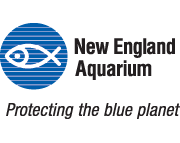Log in with
Recreational Fisheries Internship
Apply now for: Not currently accepting applications.
Time commitment: 2-3 Days per week (8:00am-5:00pm).
Winter: 125 hours total,
Spring: 12 weeks
Summer: 12 weeks.
The Fisheries Science and Emerging Technologies research program is seeking an intern to assist on a field-based project investigating the health and survival of Atlantic cod and haddock that are caught and discarded in the Gulf of Maine recreational groundfish fishery.
The intern will assist the graduate student and research team as needed on the project. This work will build on our previous investigations in the Gulf of Maine recreational groundfish fishery that evaluated the consequences of capture, handling, and release on the health and survival of both Atlantic cod and haddock. Specifically, we will now probe a step further to determine which terminal tackle types inflict the most severe injuries and impact the survival of these species. Therefore, throughout the 2018 fishing season, both species will be captured on recreational fishing vessels and assessed for a variety of factors known to influence health and survival from our previous work. Such results will help identify the most advisable terminal tackle types for management and anglers to use to reduce such detrimental impacts. Given the variety of angler experience levels and fishing practices seen in this fishery, we will also distribute a survey to understand perceptions, behaviors, and motivations of anglers targeting cod and haddock. Results will not only provide insight into angler backgrounds and practices but also the best ways to communicate recommended terminal tackle types to the community. The intern can expect to be involved in all aspects of the project, including but not limited to the following: field support; data collection, input, and analysis; and outreach activities. This work has been ongoing since January 1st, 2018, will last until December 31st, 2018, and will be conducted on fishing vessels out of Seabrook, NH and Gloucester, MA as well as at the New England Aquarium.
This position will report to Emily Jones (Associate Scientist) and will be joining a dynamic team of scientists, interns and graduate students from the Anderson Cabot Center for Ocean Life at the New England Aquarium as well as several other regional and distant government, academic, and non-profit institutions that closely collaborate on various grant funded projects.
Duties/Responsibilities include, but are not limited to:
- Accompany and support research team during field investigations.
- Oversee all data entry, maintenance, and organization.
- Assist with the exploration and analysis of data sets.
- Conduct comprehensive and relevant literature searches.
- Correspond with collaborators at various institutions.
- Aid with the preparation of project deliverables.
- Aid with project outreach efforts.
Skills/Qualifications:
- A minimum of 3 years of completed undergraduate study required; completion of undergraduate degree preferred.
- A demonstrated interest in marine biology, fisheries science and/or applied fish physiology.
- Strong academic background in biology, marine biology, fisheries or vertebrate zoology/physiology required; previous statistical coursework preferred.
- Must be willing and able to perform duties at sea on vessels in varied conditions; demonstrated experience with marine-based research preferred.
- Ability to communicate well in both the office and field environments.
- Must be highly self-motivated with the ability to work independently and as part of a team.
- Proficiency in Microsoft Office suite (Excel, Word, and PowerPoint) required; demonstrated experience with statistical computing software (e.g., SAS, SPSS, R, Python, etc.) desired.
Fisheries Science and Emerging Technologies Program Description:
The Fisheries Science and Emerging Technologies (FSET) Program delivers the scientific data fisheries managers and conservation leaders need to make responsible and informed decisions about some of the ocean’s most ecologically- and economically-important species. Through the development and utilization of cutting-edge technology, FSET delivers sound data on key factors including: movement patterns, biology, life-history, population structure, and response to acute or long-term stressors—all of which are necessary improve the management and conservation of threatened and data-poor species. We work pioneer new technologies and methodologies that address these data deficiencies and provide timely answers to pivotal management and conservation questions.
The cornerstone of FSET research is our innovative use of cutting-edge technology. Our electronic tagging technologies—including acoustic and satellite telemetry and high-resolution acceleration data loggers—allow us to achieve unprecedented insight into the lives of marine species and to explore novel approaches to significant issues. Also integral to FSET’s success are the strong relationships we have forged with industry partners within commercial and recreational fisheries, as well as state and federal management entities. By working side-by-side with our fishing industry partners, we greatly enhance the objectivity and applicability of our research, and facilitate the translation of our findings into responsible fishing practices. Our close connection to management bodies also ensures the rapid incorporation of our results into fisheries management and conservation processes and policies.
To Apply:
Not currently accepting applications.
Questions?
Visit: Frequently Asked Questions
E-mail: intern@neaq.org
Call: 617-973-5235
Applications should be submitted by*:
Spring: November 1st
Summer: January 31st
Fall: June 1st
Winter: October 16th
*Priority given to candidates applying by this date. Full application details available here.
Can I still apply?
©2017 New England Aquarium, an affiliate of the HandsOn Connect, 1 Central Wharf, Boston, MA 02110 | 617 - 973 - 5200


Connect with Us!